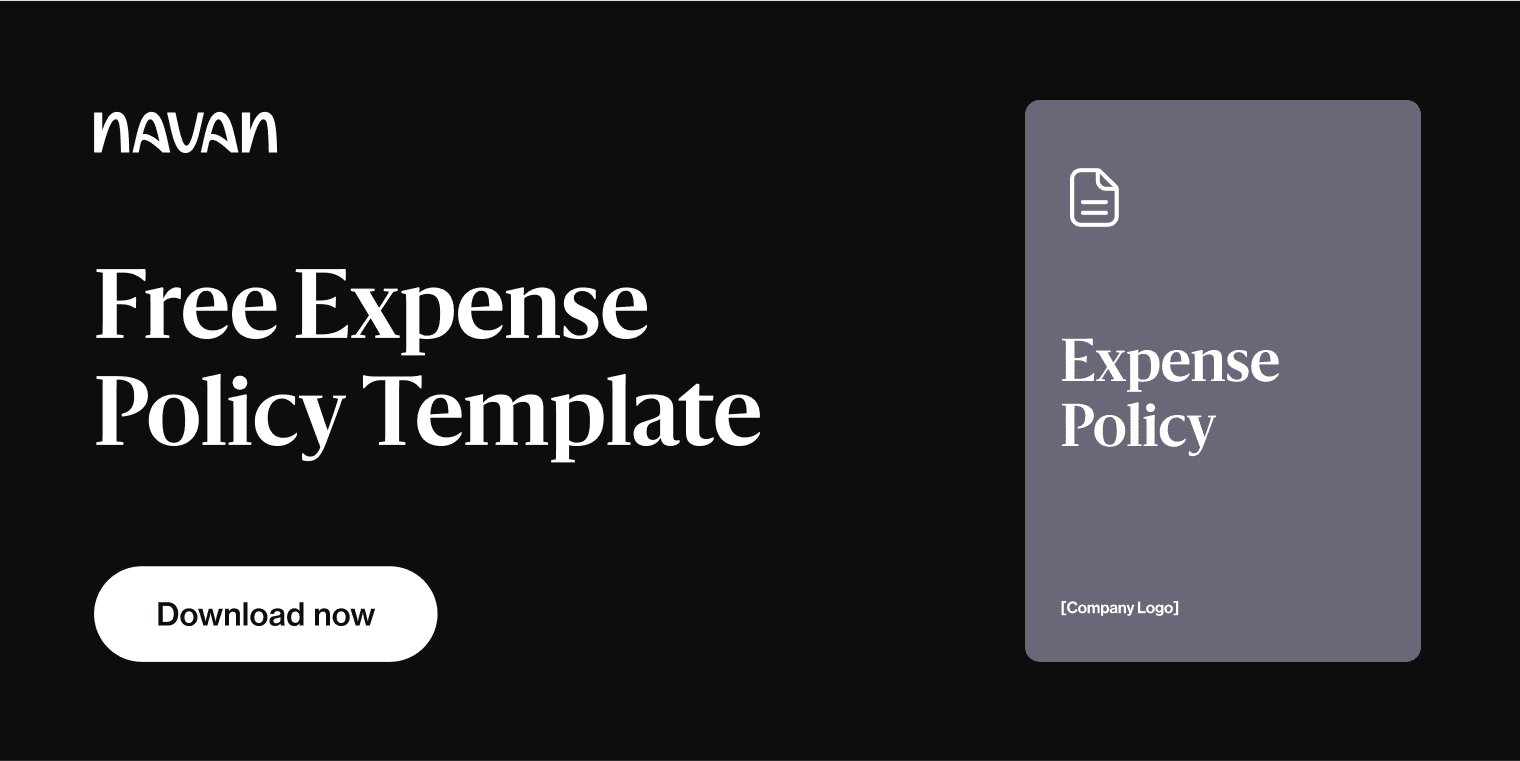Expense Policy
An expense policy is a crucial document that outlines guidelines and procedures governing how employees can spend company funds for business-related purposes. It serves as a framework for:
- Managing expenses efficiently
- Controlling costs
- Ensuring compliance with company regulations and legal requirements
- Maintaining financial transparency
Expense policies become simpler to enforce when paired with modern expense management software.
Purpose of an Expense Policy
An expense policy serves several key purposes within an organization:
Cost Control
By defining what expenses are acceptable and providing spending limits, an expense policy helps control costs and prevents misuse of company funds.
Compliance
Expense guidelines ensure that all spending is compliant with company policies, industry regulations, and tax laws, reducing the risk of financial discrepancies or legal issues.
Transparency
Implementing an expense policy provides transparency regarding the expense reimbursement processes, making it clear how employees can spend company money and how reimbursements are handled.

Key Components of an Expense Policy
An effective expense policy typically includes the following components:
Expense Categories:
- Clearly defined categories of allowable expenses (e.g., travel, meals, lodging, transportation).
- Definitions or examples of what constitutes each expense category to avoid ambiguity.
Spending Limits:
- Maximum allowable amounts for different types of expenses.
- Thresholds for requiring additional approval beyond standard limits.
Approval Procedures:
- Guidelines for obtaining pre-approval for certain expenses, such as travel bookings or large purchases.
- Approval hierarchy, with clearly defined expense authorizers.
Documentation Requirements:
- Detailed instructions on how expenses should be documented and submitted for reimbursement.
- Requirements for submitting receipts, invoices, and other supporting documentation.
Expense Reimbursement Process:
- Clear outline of the process for submitting expense reports and receiving reimbursements.
- Timelines for reimbursement and any policies regarding advances or company credit cards.
Travel Policies:
- Specific policies related to business travel, including booking procedures, preferred vendors, and travel expense guidelines.
- Per diem rates for meals and incidental expenses during travel.
Non-Reimbursable Expenses:
- List of expenses that are not reimbursable, such as personal entertainment or fines.
Consequences of Policy Violations:
- Statement outlining the consequences of violating the expense policy, including disciplinary actions.
Best Practices for Creating an Effective Expense Policy
To ensure your expense policy is comprehensive and effective, consider these best practices:
- Clarity and Simplicity: Make sure the policy language is clear, concise, and easy to understand for all employees.
- Regular Updates: Review and update the policy regularly to reflect changes in company needs, industry regulations, or tax laws.
- Communication and Training: Provide training and communication to employees about the expense policy, including how to adhere to its guidelines.
- Flexibility: While having clear guidelines is important, allow for some flexibility to accommodate unique business needs or unexpected situations.
- Technology Integration: Utilize expense management software or tools to streamline the expense reporting process and ensure compliance.
- Feedback Mechanism: Encourage feedback from employees regarding the policy’s effectiveness and any areas that may need improvement.
An expense policy serves as the backbone for managing company expenses effectively, but the adoption of expense management software greatly enhances compliance and efficiency. By integrating such software into your processes, organizations can streamline expense management, minimize risks, and seamlessly maintain financial transparency.
Frequently Asked Questions
Read now
Take Travel and Expense Further with Navan
Move faster, stay compliant, and save smarter.